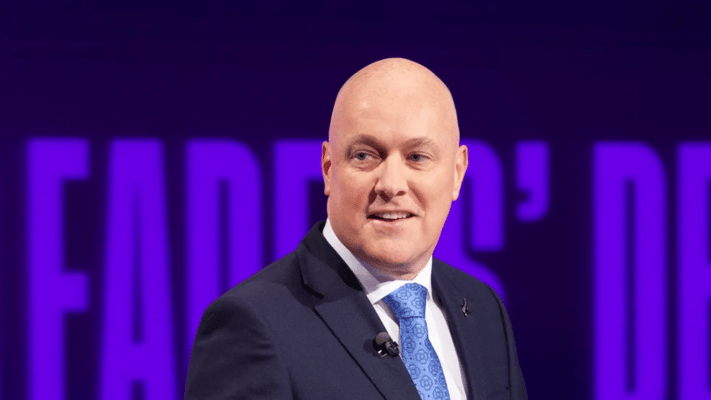Tracking Government's Drive For English-First Naming

Prime Minister Christopher Luxon has declared a shift from talk to action in New Zealand, unveiling his Q2 'Action Plan' with 36 key initiatives. Notably absent from the plan is the coalition's 'English-first' directive, which requires government departments and Crown entities to use English primarily, except in cases related to Māori affairs.
The coalition agreement between the National and NZ First parties stipulates that government communication should be predominantly in English, with exceptions for Māori-related departments. However, several entities could fall under this directive, with 11 clear examples identified by Stuff.
Among these, Waka Kotahi ‒ NZ Transport Agency, Te Whatu Ora ‒ Health NZ, and Rau Paenga ‒ Crown Infrastructure Delivery have taken steps to prioritize English over their te reo Māori names. Notably, Kāinga Ora poses a challenge as its Māori-first name is entrenched in legislation, potentially requiring a law change for a full transition to its English name, "Homes and Communities."
Waka Kotahi has already begun implementing the policy, updating its logo and ordering new high-visibility vests and hard hats with the new branding. Te Whatu Ora has also made the switch to Health NZ | Te Whatu Ora, updating its name on digital channels and templates.
Despite the directive not technically applying to Rau Paenga Ltd, the Crown infrastructure delivery company, it has still made preparations, spending $560 on alternative logo layouts that prioritize the English descriptor over its Māori name.
However, several key entities, including Te Papa Tongarewa (the national museum), Oranga Tamariki (the Ministry for Children), and Manatū Taonga (the Ministry for Culture), have not received any directives or initiated changes to their branding.
Minister for the Public Service Nicola Willis emphasized the government's commitment to te reo Māori's revitalization but stressed that public services should be accessible to all New Zealanders in a language they understand. She confirmed that directives related to the coalition commitment are handled on a case-by-case basis, with no specific or generic directives issued thus far.
Prime Minister Christopher Luxon has declared a shift from talk to action in New Zealand, unveiling his Q2 'Action Plan' with 36 key initiatives. Notably absent from the plan is the coalition's 'English-first' directive, which requires government departments and Crown entities to use English...
Prime Minister Christopher Luxon has declared a shift from talk to action in New Zealand, unveiling his Q2 'Action Plan' with 36 key initiatives. Notably absent from the plan is the coalition's 'English-first' directive, which requires government departments and Crown entities to use English primarily, except in cases related to Māori affairs.
The coalition agreement between the National and NZ First parties stipulates that government communication should be predominantly in English, with exceptions for Māori-related departments. However, several entities could fall under this directive, with 11 clear examples identified by Stuff.
Among these, Waka Kotahi ‒ NZ Transport Agency, Te Whatu Ora ‒ Health NZ, and Rau Paenga ‒ Crown Infrastructure Delivery have taken steps to prioritize English over their te reo Māori names. Notably, Kāinga Ora poses a challenge as its Māori-first name is entrenched in legislation, potentially requiring a law change for a full transition to its English name, "Homes and Communities."
Waka Kotahi has already begun implementing the policy, updating its logo and ordering new high-visibility vests and hard hats with the new branding. Te Whatu Ora has also made the switch to Health NZ | Te Whatu Ora, updating its name on digital channels and templates.
Despite the directive not technically applying to Rau Paenga Ltd, the Crown infrastructure delivery company, it has still made preparations, spending $560 on alternative logo layouts that prioritize the English descriptor over its Māori name.
However, several key entities, including Te Papa Tongarewa (the national museum), Oranga Tamariki (the Ministry for Children), and Manatū Taonga (the Ministry for Culture), have not received any directives or initiated changes to their branding.
Minister for the Public Service Nicola Willis emphasized the government's commitment to te reo Māori's revitalization but stressed that public services should be accessible to all New Zealanders in a language they understand. She confirmed that directives related to the coalition commitment are handled on a case-by-case basis, with no specific or generic directives issued thus far.










Leave a Comment